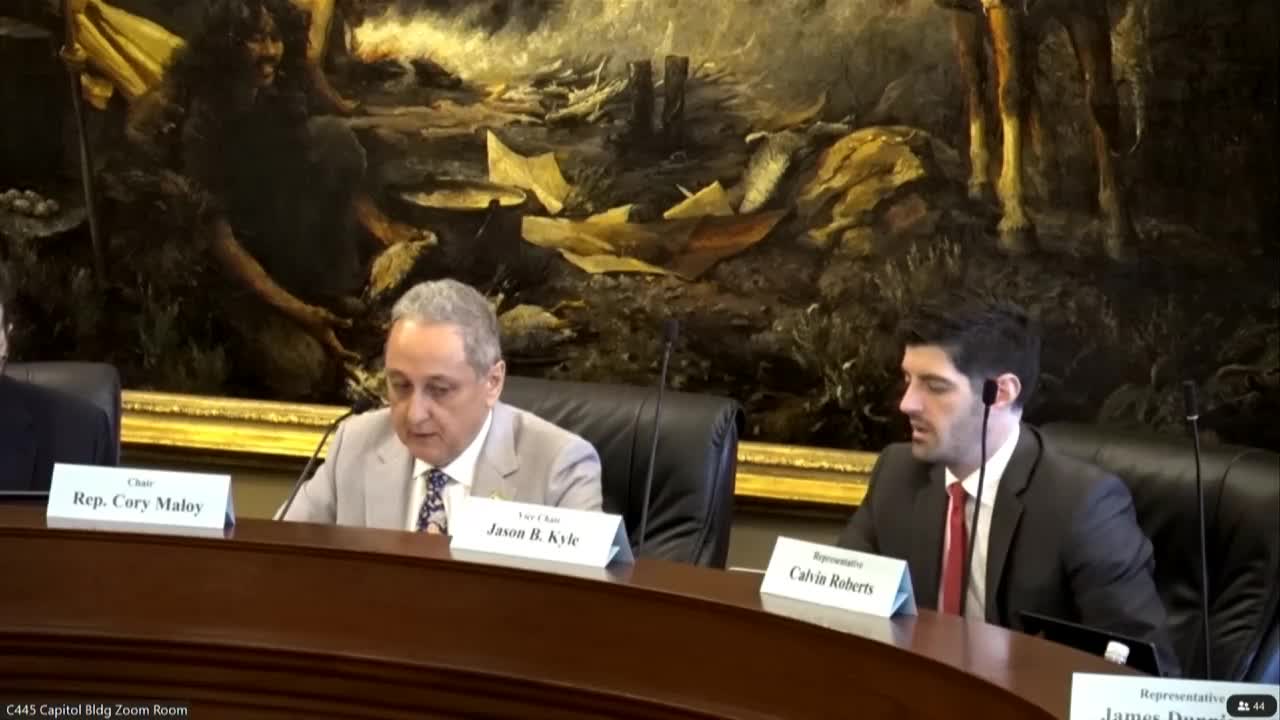Committee backs McPherson plan to overhaul vape regulation, repeal local flavor ban and boost enforcement funding
Get AI-powered insights, summaries, and transcripts
Subscribe
Summary
The committee adopted a substitute and reported House Bill 432 favorably 8–6 after hours of testimony from industry, health groups and retailers. The substitute repeals elements of prior law, raises fees and penalties, creates distributor licensing and a 2.5% product tax to fund enforcement and research, and starts an RFID pilot.
A House committee voted 8–6 on Thursday to report House Bill 432, a wide‑ranging rewrite of Utah’s vape rules that would repeal parts of the state’s prior flavor restrictions, remove a nicotine‑content limit, increase licensing and enforcement funding, and create a distributor regulatory structure and an RFID pilot to track products.
Representative McPherson, the sponsor, told the committee he drafted the substitute to address illegal sales to minors and enforcement gaps in the current framework. “SB 61 didn't do anything that would provide any real benefit to preventing youth vaping in this state,” McPherson said, arguing the substitute concentrates enforcement where illegal sales occur and funds active compliance work.
Key features discussed in committee include:
- Repeal of statutory language that restricted flavored electronic cigarette products to retail tobacco specialty businesses (RTSBs) and repeal of the statutory nicotine‑content limit. - Creation of a handling permit and higher RTSB license fees (example figure discussed: raise from $30 to $3,000 annually) to fund enforcement and training for employees. - A new 2.5% tax on products, with about 80% of revenue directed to the Department of Health and Human Services for enforcement, cessation campaigns and research. - Stronger penalties for sales to minors and distributor violations, including first‑offense fines and permit suspensions (the sponsor described a hypothetical first offense fine of $10,000 and a 30‑day suspension) and escalated second‑offense penalties including lifetime revocation tied to owners. - A pilot program for RFID tagging of products (20 stores), with eventual requirement for RFID on packaging and sponsor commitment to consider device‑level tagging.
McPherson described enforcement evidence from Salt Lake County health compliance checks showing much higher failure rates among general retailers than among RTSBs and said the bill would create an enforcement fund and allow non‑sting enforcement actions. He also said the bill aims to avoid shutting down RTSPs while doing more to control illegal vendors and the distributors that supply them.
The hearing attracted competing testimony. Beau Maxon of the Utah Vapor Business Association said the substitute “is without question the most unprecedented piece of tobacco regulation” and supported strong enforcement paired with the substitute’s regulatory framework. Several retail vape‑shop owners warned the committee the bill could imperil licensed businesses that invested in the RTSB framework, describing long leases and buildouts under the prior regime.
Public‑health witnesses, including Ray Alonzo of the Utah Medical Association and Dr. Kelly Adams of Utah PTA, opposed removing nicotine limits and warned that flavored products and higher nicotine concentrations increase youth uptake and addiction. “If I'm a youth, and I want to try smoking, I'm going to be more inclined to reach for a product that says green apple on it,” Ray Alonzo said.
Other witnesses argued the federal pre‑market pathway (PMTA) and FDA product reviews complicate the market: attorneys and consumer advocates pointed to enforcement gaps for unregulated products often manufactured abroad. Legal advocates told the committee that parts of last year’s SB61 have pending litigation focused on search‑and‑seizure issues; industry witnesses said the substitute would remove litigation risk by changing the state’s approach.
Representative Ballard moved the substitute and later moved that the committee report the bill favorably. The roll‑call record captured yes votes from Ballard, Nguyen, Peterson, Roberts, Sawyer, Speaker Schultz, Wilcox and Chair Malloy; recorded no votes included Dunnegan, Ivory, Thurston, White, Vice Chair Kyle and others for a final tally of 8–6 in favor.
During floor‑discussion time the sponsor said he would consider amendments to add a nicotine cap (several members urged a 3–5% cap) and to require RFID on devices rather than solely in packaging. The committee adopted the first substitute without recorded opposition and reported the bill favorably 8–6.
The substitute contains a mix of supply‑side controls (distributor licensing, penalties) and revenue measures (licensing fees and a product tax) intended to fund enforcement, cessation advertising, and research. It will go to the House floor for additional amendment and debate.
